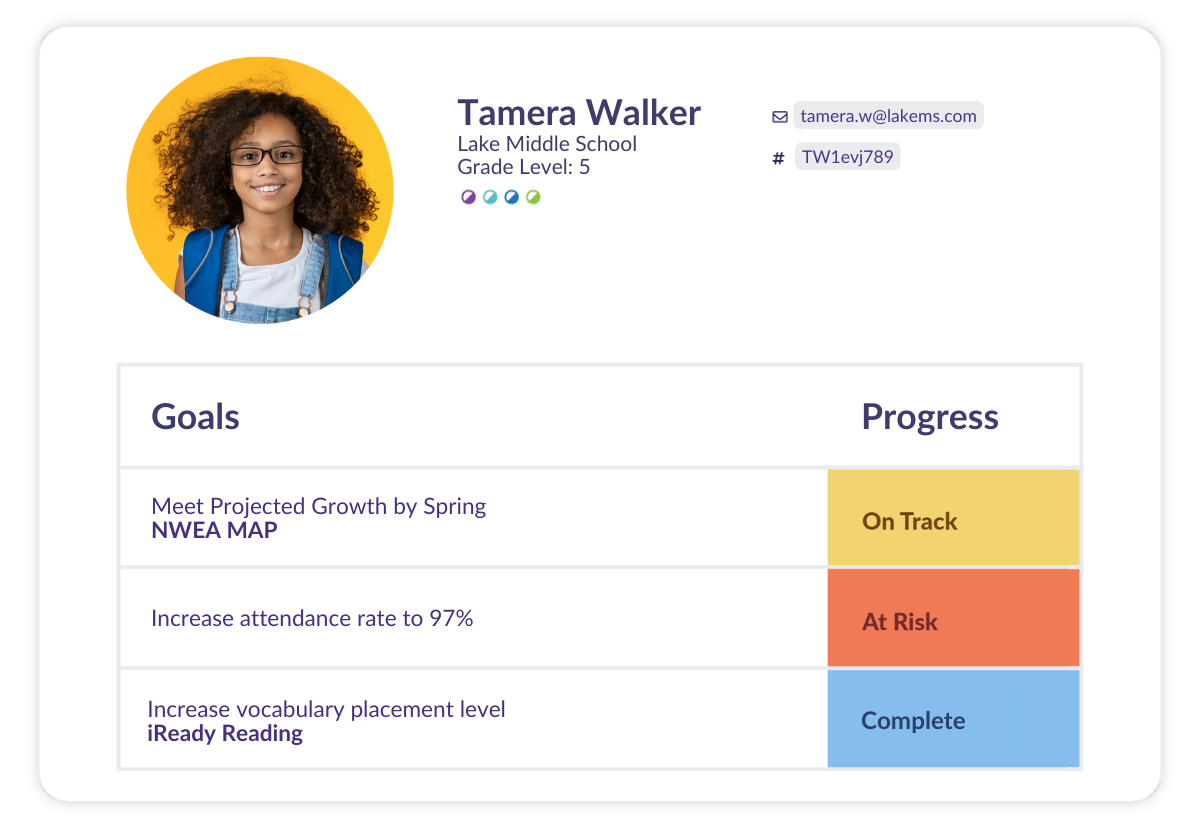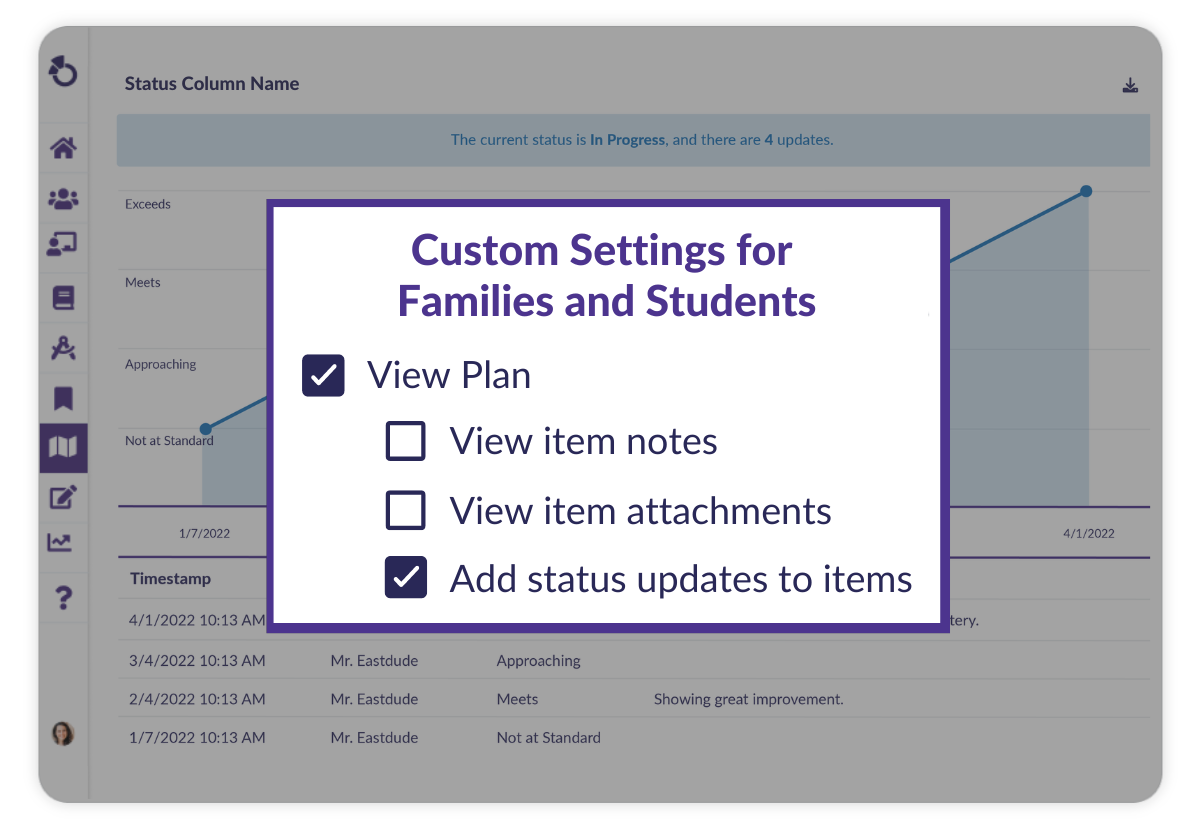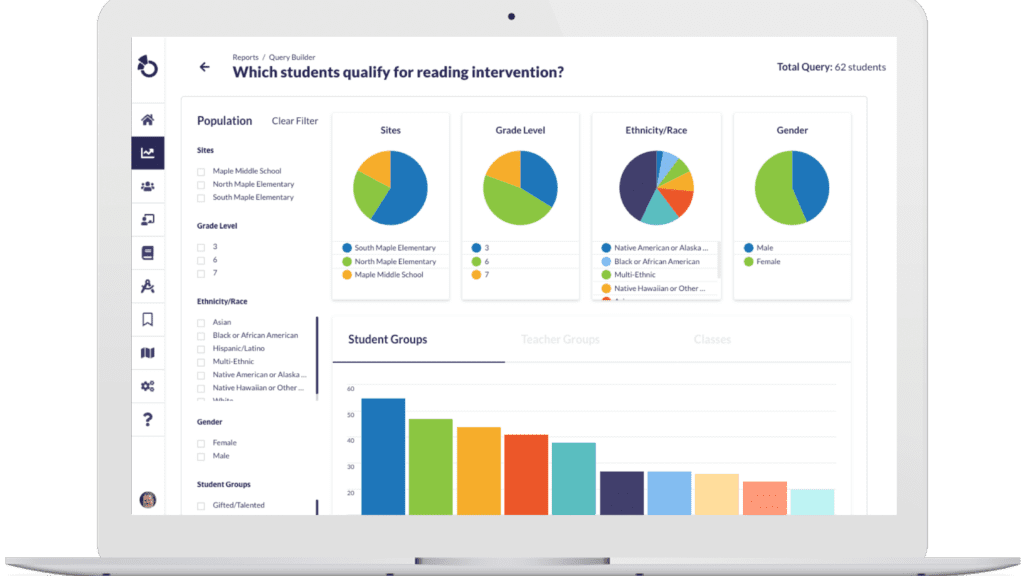How K-12 Schools Can Use Technology to Support Chronically Absent Students
By: Kendell Hunter
Chronic absenteeism is generally defined as missing at least 10 percent of school days a year, equating to 18 days in a typical 180-day school year. In recent years, chronic absenteeism has significantly increased in K-12 schools.
Research shows that chronically absent students are at higher risk for adverse outcomes later in life, including
diminished health, increased involvement in the criminal justice system, and fewer job opportunities.
Technology tools like Otus can play a crucial role in supporting chronically absent students. Otus provides educators with the tools and insights needed to implement targeted interventions, track progress, and collaborate effectively with stakeholders to address underlying issues contributing to chronic absenteeism.
Implementing Targeted Support: How Otus Enhances Intervention Strategies

Identifying Patterns: Otus progress monitoring allows educators to track attendance patterns over time. By identifying students who are frequently absent, educators can intervene early to address underlying issues contributing to their chronic absenteeism.
Customized Interventions: Otus progress monitoring plans enable educators to develop customized interventions tailored to the specific needs of chronically absent students. These interventions may include individualized support, counseling services, family outreach, referrals to community resources, and more.
Monitoring Attendance Goals: Otus progress monitoring plans can include specific attendance goals for each student. Educators can track students' progress toward these goals in real-time, providing timely feedback and support to help them improve their attendance habits.
Collaborative Approach: Otus plans facilitate collaboration among educators, administrators, parents, and other stakeholders. By sharing data and insights through the Otus platform, stakeholders can work together to develop comprehensive strategies for addressing chronic absenteeism.

With the ability to make plans visible to students and families (or even have them contribute with their own status updates), schools are able to build a stronger home-to-school connection.
Early Intervention: Educators can detect signs of chronic absenteeism early on and intervene proactively before attendance issues escalate. Early intervention is key to preventing long-term negative consequences for students' academic achievement and overall well-being.
Data-Informed Decision-Making: Otus provides educators with access to data-driven insights that can inform decision-making regarding interventions, resource allocation, and policy development related to chronic absenteeism.
Tracking Progress: Otus allows educators to track the effectiveness of interventions implemented to address chronic absenteeism. By monitoring students' progress over time, educators can identify what strategies are working well and make adjustments as needed.
Watch this webinar to learn from K-12 leaders as they share the current state of chronic absenteeism in their school districts and discuss the impact of absenteeism beyond academic performance, the role of school climate and culture in influencing student attendance and engagement, and strategies to boost attendance
To learn more about how Otus can help support students who are chronically absent, request a demo.
Request a demo!
See exactly how Otus can help your school accelerate student growth and improve student outcomes – all while saving educators time.





